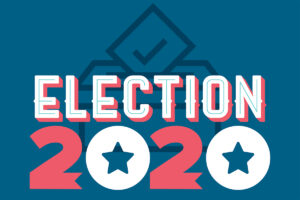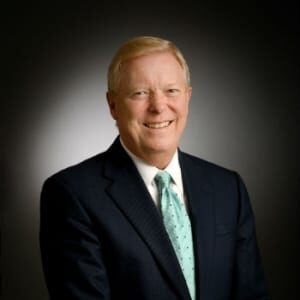The article below was written by and published in The Source on
Former Congressman Richard Gephardt does not know who will win the 2020 presidential election. Nor does he know when the race will be called. But Gephardt does believe the election will be safe, secure and fair.

“People need to be patient and calm and have confidence that the election officials in all of the states can do their job,” said Gephardt, founder of the Gephardt Institute for Civic and Community Engagement at Washington University in St. Louis and former House majority leader. “Because of the deep polarization among the American people today, one side thinks the other side is already cheating and the other side thinks the same. If people don’t believe the process is fair, they are going to be unwilling to accept the results.”
At 6 p.m. Tuesday, Oct. 27, Gephardt, D-Mo., will join other former U.S. Reps. Deborah Pryce, R-Ohio, Tim Roemer, D-Ind., and Zach Wamp, R-Tenn., for “Counting Every Vote: Election Integrity in 2020,” a discussion about the challenges facing the election process. The panelists are members of the new National Council on Election Integrity, a bipartisan group of more than 40 former elected officials, former Cabinet secretaries, retired military officials and civic leaders. The council recently launched “Count Every Vote,” a public education campaign highlighting the country’s ability to hold safe and secure elections during the coronavirus pandemic.
Nancy Staudt, dean of the university’s School of Law and the Howard & Caroline Cayne Distinguished Professor of Law, will serve as moderator. The event is hosted by the Gephardt Institute, Brown School and School of Law. RSVP here to receive a Zoom link 24 hours in advance.
Here, Gephardt shares why he trusts American elections and why he won’t be staying up late on election night.
Surveys show that the majority of Americans don’t believe the election will be conducted fairly. Why should they trust the process?
A lot of the mistrust comes from not really understanding the process and what election officials do. Both Democrats and Republicans in our group will tell you election officials have always worked to have fair elections. That doesn’t mean every election is perfect. Glitches happen. But we’ve done this before, even in times of war and national crisis. We’ve had soldiers and sailors send in their ballots from all over the world to have their votes counted. And today, significant investments have been made to update technology and recruit and train poll workers.
What will you be doing on election night?
Like all of us, I’ll be sitting in front of the television. But I am well aware that we aren’t going to get a result on election night, so I might even go to bed early. We’ve taken to calling it election week, which is how you have to think about it. The people who have been waiting in long lines are starting to wrap their heads around the fact that you don’t have to have an election on just one day. That’s over. That’s the past. We have the technology today to let people vote over the course of several weeks.
After this is all over, how do we restore trust in elections?
I’ll take that question one step further and ask, ‘How do we restore people’s confidence in democracy, in government, in our ability to make complicated decisions?’ First, whoever is elected president should try to unite us, not divide us. Also, we have to address the politicization of our media. If we end up with a larger version of Fox on one side and a larger version of MSNBC on the other, then we’ve got a big problem. On top of that, you have social media, where nothing is filtered. You get to a point where there is no shared reality, there are no shared facts. And without shared facts, democracy will fail and end up with Plan B, an authoritarian model. I don’t think anyone wants that.
